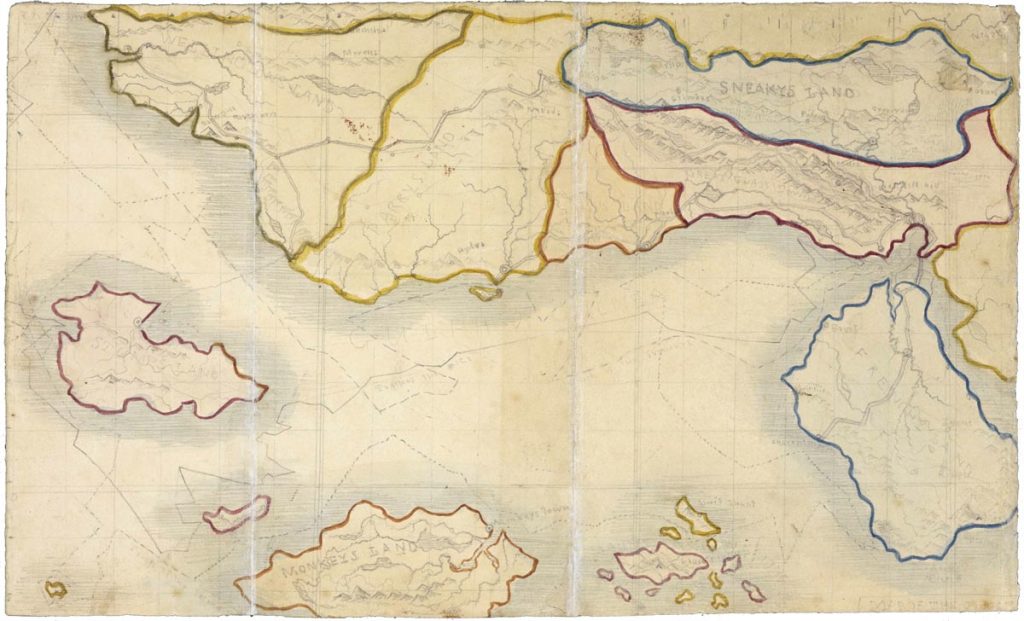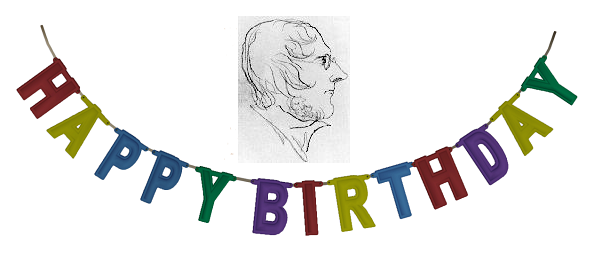Today, the 26th of June 2018, marks the 201st birthday of Patrick Branwell Brontë, fourth born of the six Brontë siblings and a man who would have a huge influence on the lives of his three famous writing sisters Charlotte, Emily, and Anne.
We have looked at this complex man before, and discovered that there’s far more to him than the two dimensional drunkard often portrayed. He was hugely talented, being able to write a letter in Greek and Latin simultaneously using both hands was just one of his incredible feats. He was a promising painter and a keen poet, but fate decreed that his talents in these areas would never reach their zenith. Branwell it was who shared his soldiers and created the world of Angria, events that would lead directly to the Brontë books we love so much today, and Branwell it was who drew pictures for his little sister Anne as she sat adoringly on his knee.

His later troubles are well known, and while his thwarted love affair with Mrs Lydia Robinson is the famous catalyst, their true origins are much more earlier and much more profound: the early losses of his mother and his beloved sisters Maria and Elizabeth were events he could never forget, and from those sad days onward the outcome was inevitable.

But, it’s Branwell Brontë’s birthday, so let’s celebrate as he would have wanted – the sun is blazing down, the moors look incredible, and there are plenty of cooling draughts being served in inns across Yorkshire and beyond. On this day let’s charge a glass to Branwell, and do what perhaps he would most have wanted, remember that he was at heart a good man and a loving sibling, and remember that he was indeed a poet. Here is The Epicurean’s Song of 1842 when the deaths of his much loved Aunt Branwell and his friend William Weightman had awakened visions of earlier losses:
‘The visits of Sorrow
Say, why should we mourn?
Since the sun of to-morrow
May shine on its urn;
And all that we think such pain
Will have departed – then
Bear for a moment what cannot return.
For past time has taken
Each hour that it gave,
And they never awaken
From yesterday’s grave;
So surely we may defy
Shadows, like memory,
Feeble and fleeting as midsummer wave.
From the depths where they’re falling
Nor pleasure, nor pain,
Despite our recalling,
Can reach us again;
Though we brood over them,
Naught can recover them,
Where they are laid they must ever remain.
So seize we the present,
And gather its flowers,
For – mournful or pleasant –
‘Tis all that is ours;
While daylight we’re wasting.
The evening is hasting,
And night follows fast on vanishing hours.
Yes – and we, when night comes,
Whatever betide,
Must die as our fate dooms,
And sleep by their side;
For change is the only thing
Always continuing;
And it sweeps creation away with its tide.’
